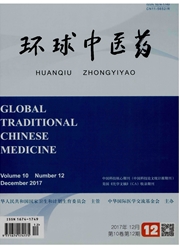

 中文摘要:
中文摘要:
地中海贫血是世界上发病率高危害最大的单基因遗传病,目前尚无有效的治疗办法。主要是通过输血联合应用药物来改善患者的临床症状。药物治疗维持时间较短,且有严重的副作用,限制了其在临床上的应用。其根治手段是骨髓和干细胞移植以及基因治疗,前者由于配型和髓源限制,尚不能在临床上普及,后者因同源重组率低的问题尚未解决,临床应用尚待时日。传统的中医药治疗出现了可喜的苗头,但大多只限于个案报道,缺乏系统的研究。本文收集了目前地中海贫血临床治疗用药情况的部分资料,通过客观总结相关治疗药物的优势和劣势,以期为临床治疗地中海贫血提供参考。
 英文摘要:
英文摘要:
Thalassemia is a type of single-gene genetic diseases with high morbidity worldwide. There is no effective treatment at present. The patients who suffer from thalassemia mainly improve the clinical symptoms by transfusion combined with using drugs Drug therapy maintains does not produce lasting effectiveness, and it has serious side effects, which have limited its application in clinical practice. Its radical treatment is the bone marrow and stem cell transplantation and gene therapy. The former cannot be popularized in clinical practice due to the limit of matches and pith source, and the application of the latter still takes time because the problem of low homologous recombination rate hasnf been solved yet. Therapy by using traditional Chinese medicine has become a promising trend, but it is limited to individual cases and lacks systematic study. This paper collected part of the data on clinical treatment of the thalassemia, and through objective summary of the advantages and disadvantages of various treatments, it aims to provide some reference for clinical treatment of thalassemia.
 同期刊论文项目
同期刊论文项目
 同项目期刊论文
同项目期刊论文
 Clinical Effect and Mechanism of Yisui Shengxue Granules in Thalassemia Patients with Mild,Moderate,
Clinical Effect and Mechanism of Yisui Shengxue Granules in Thalassemia Patients with Mild,Moderate, 期刊信息
期刊信息
